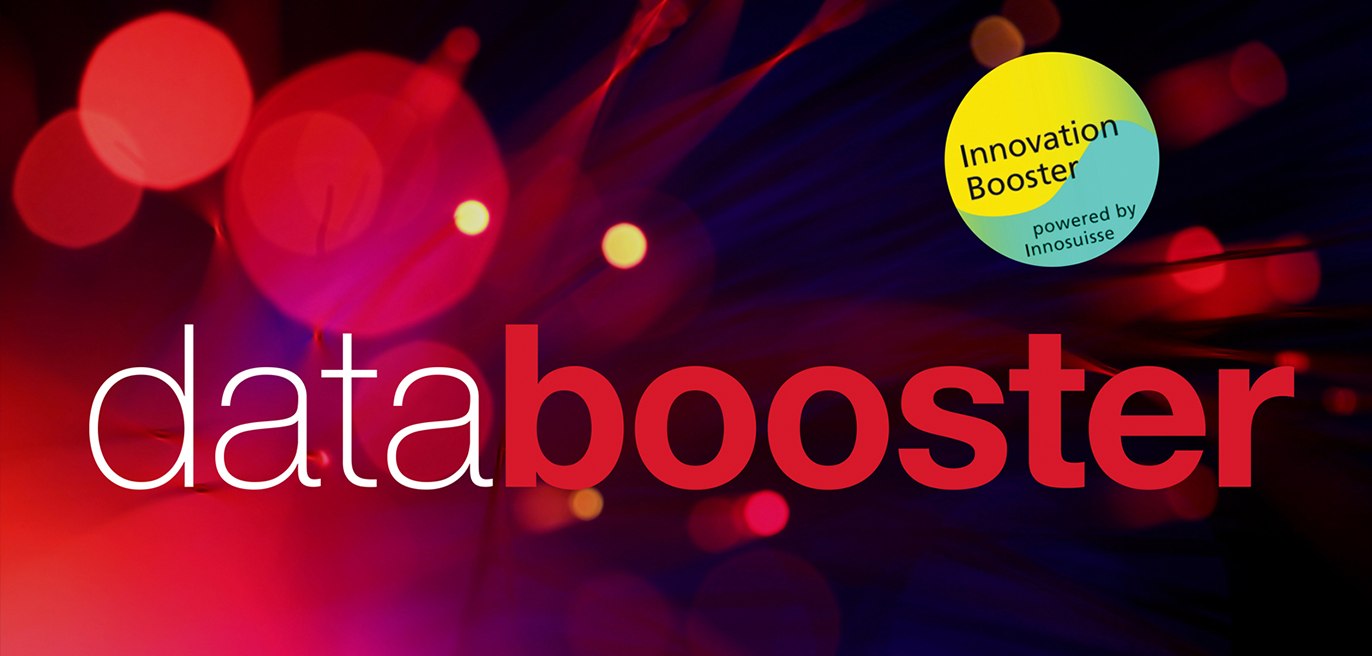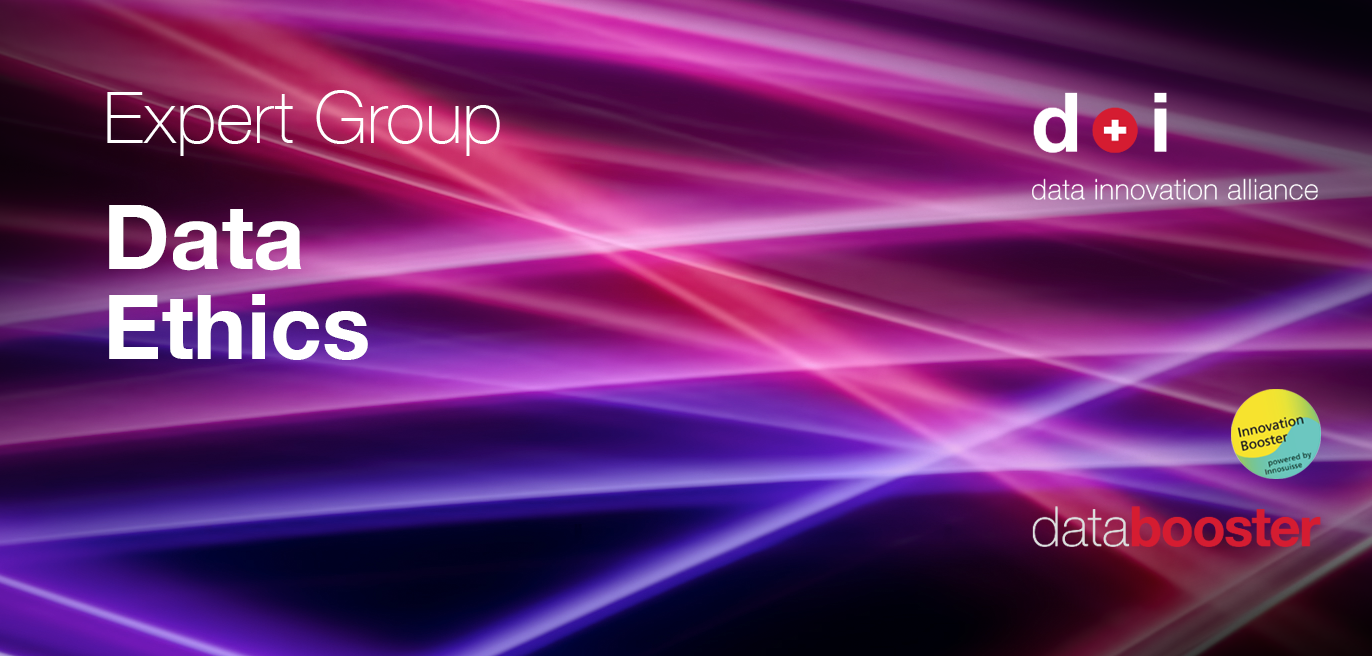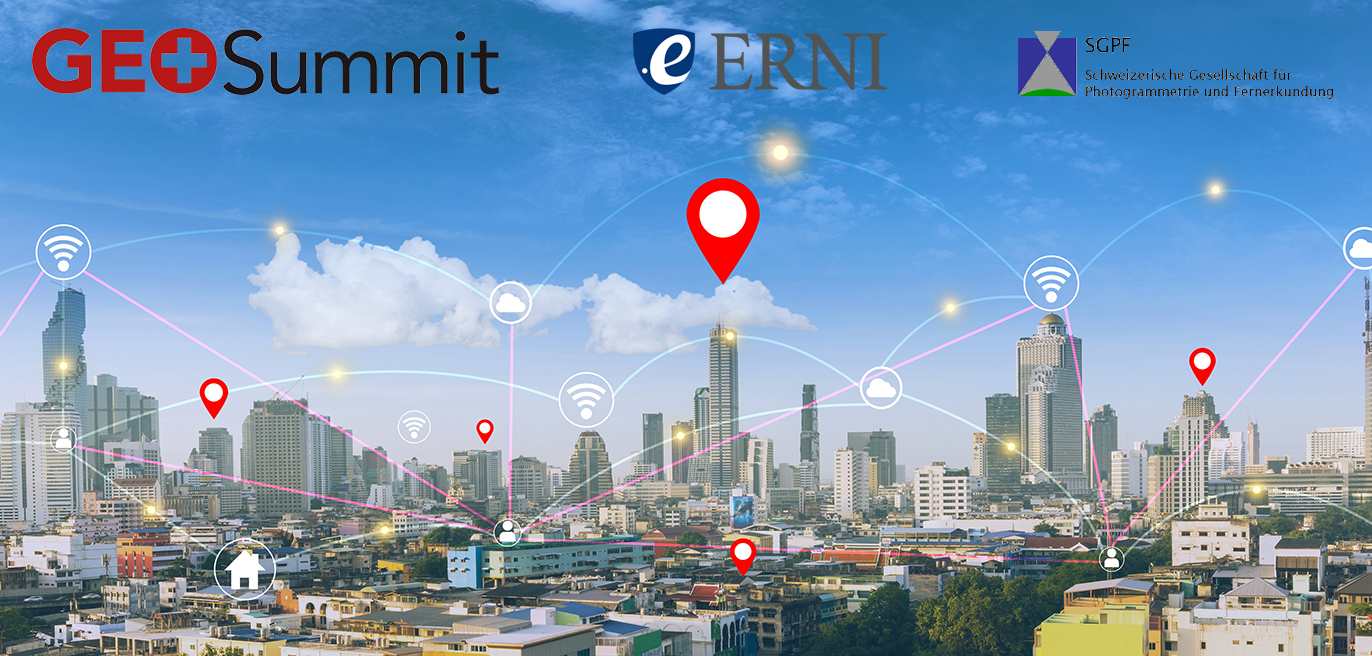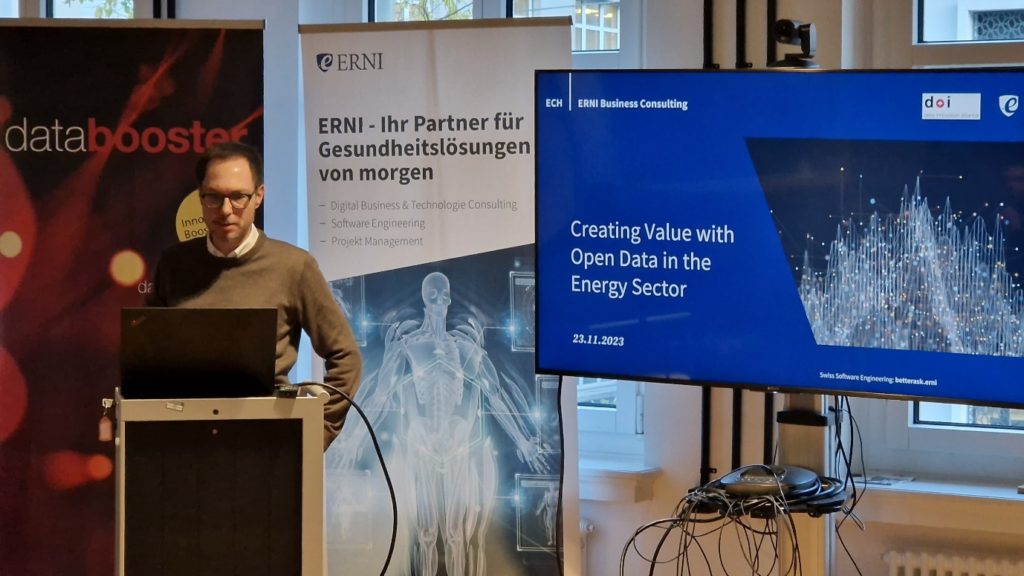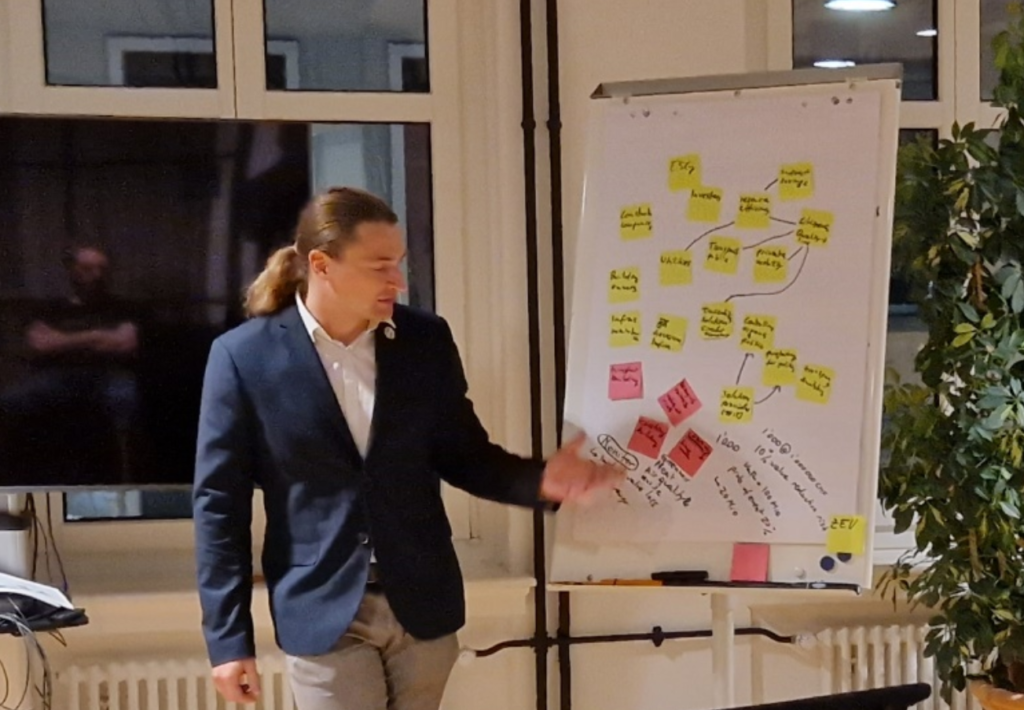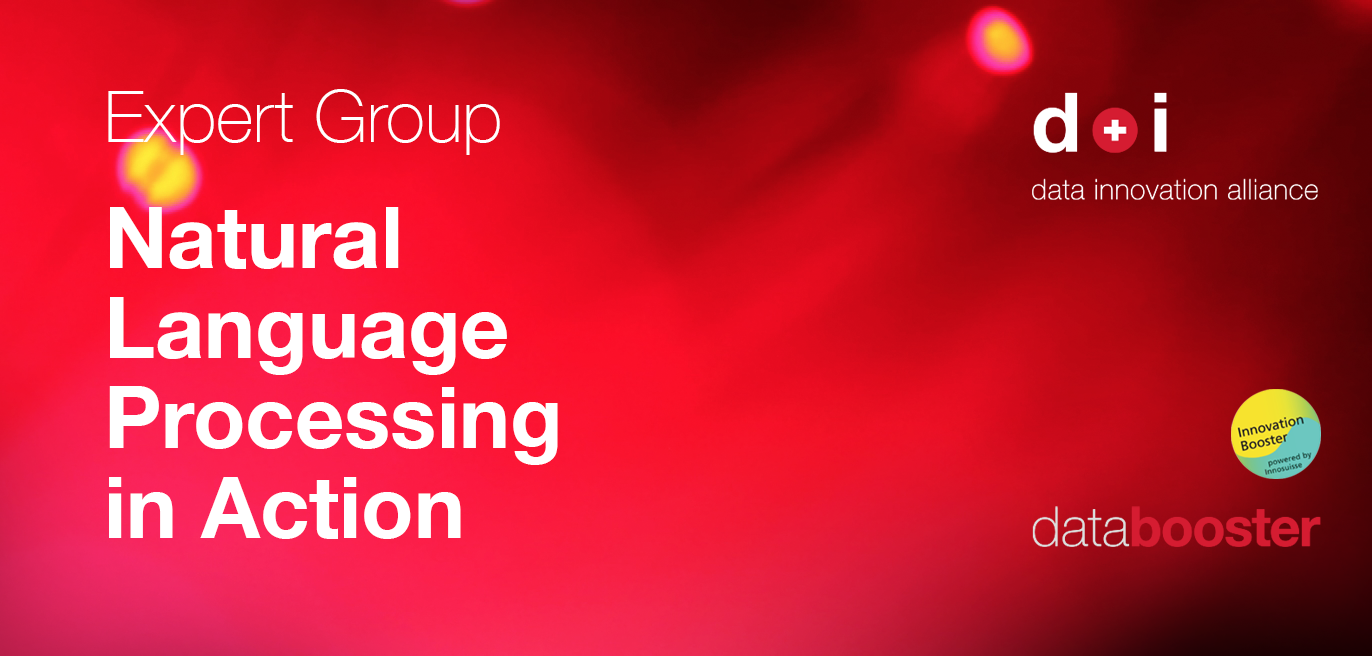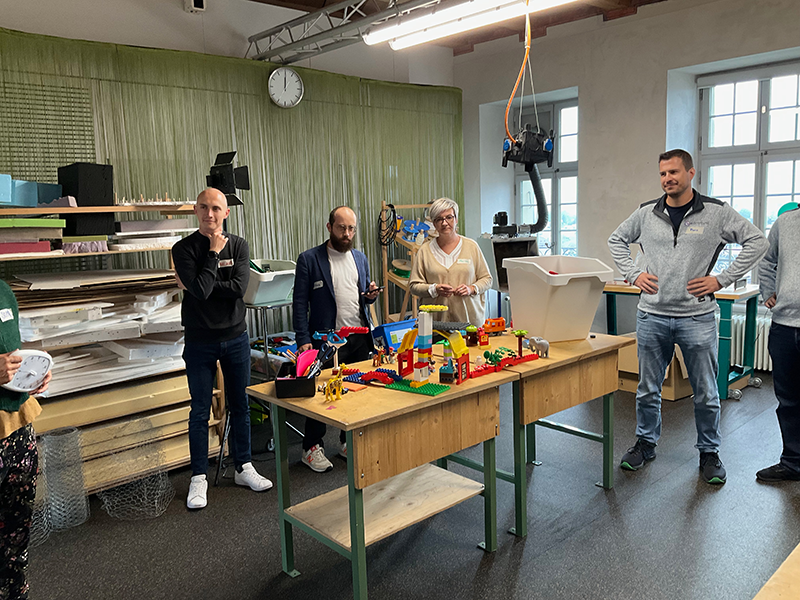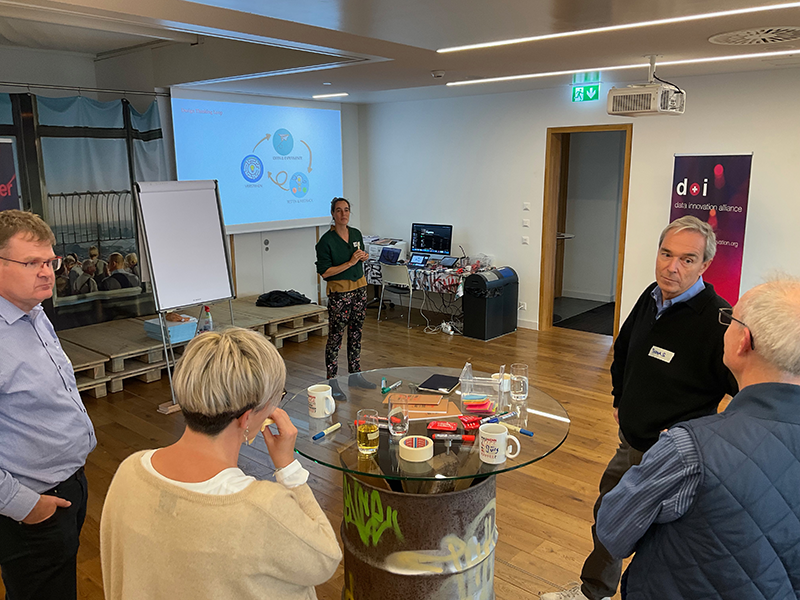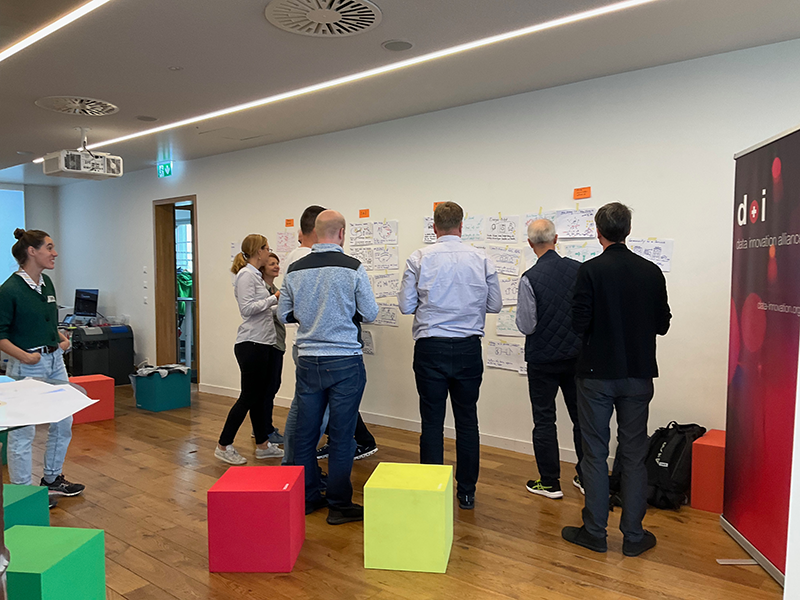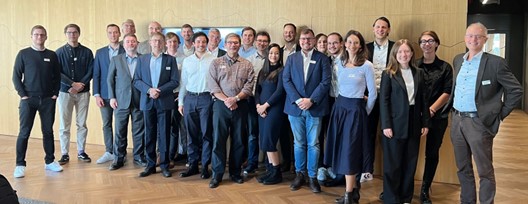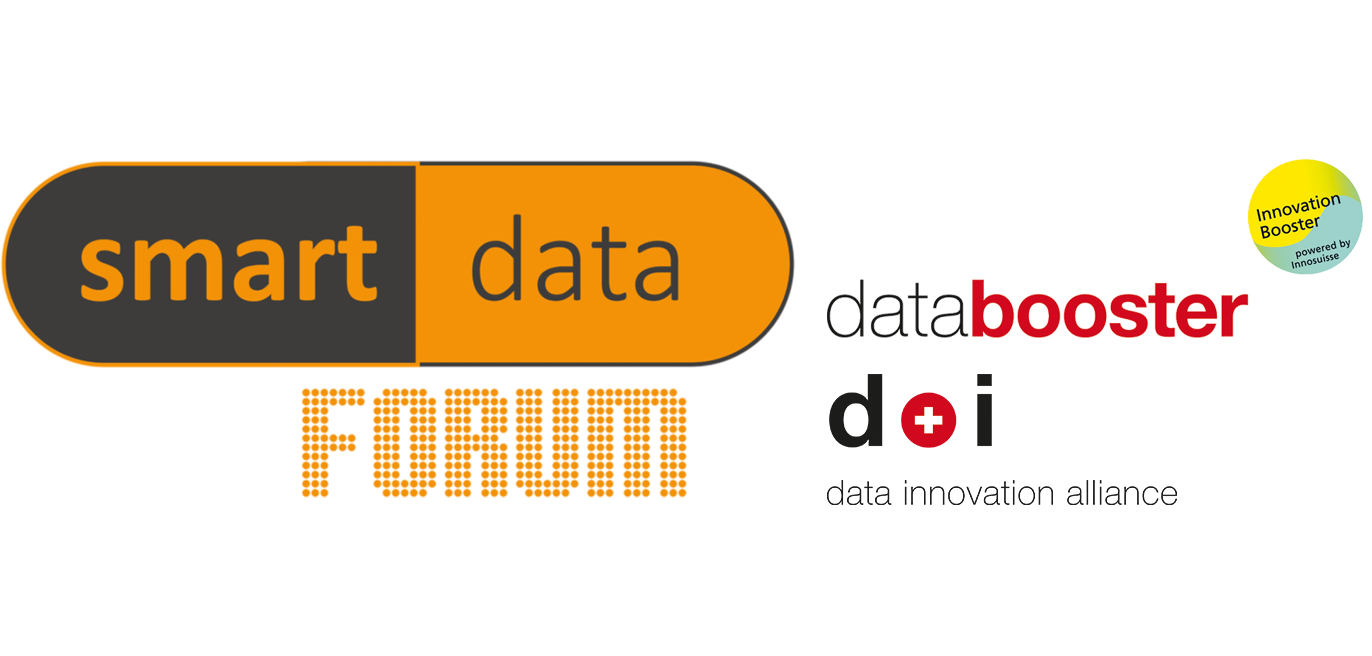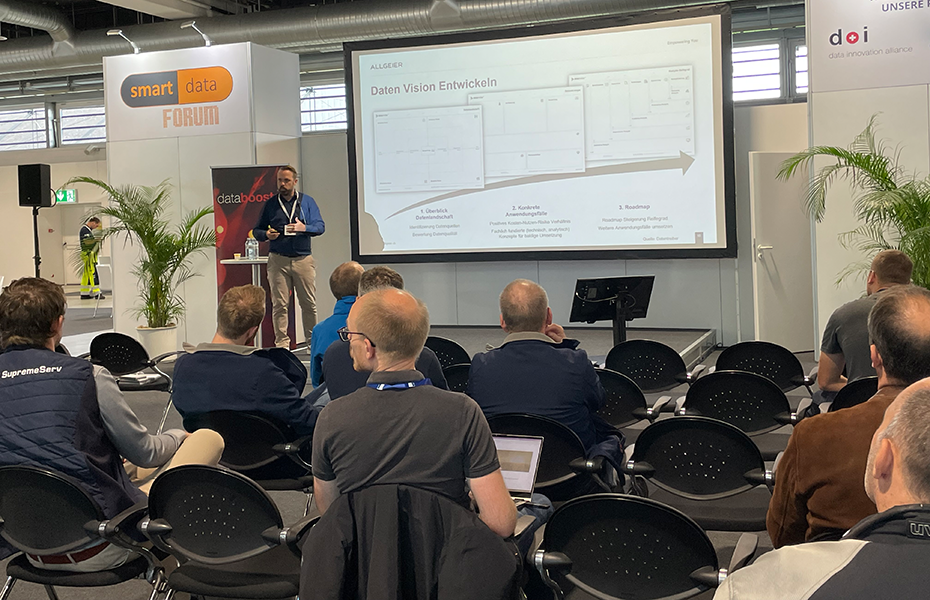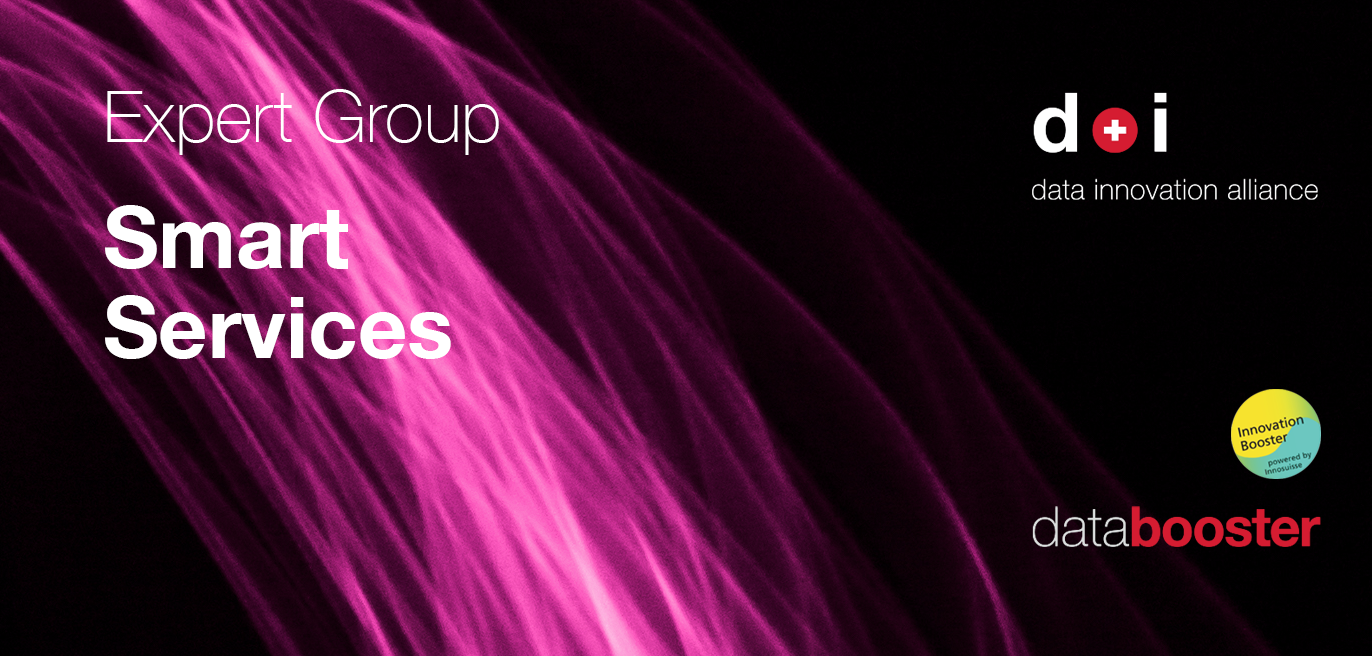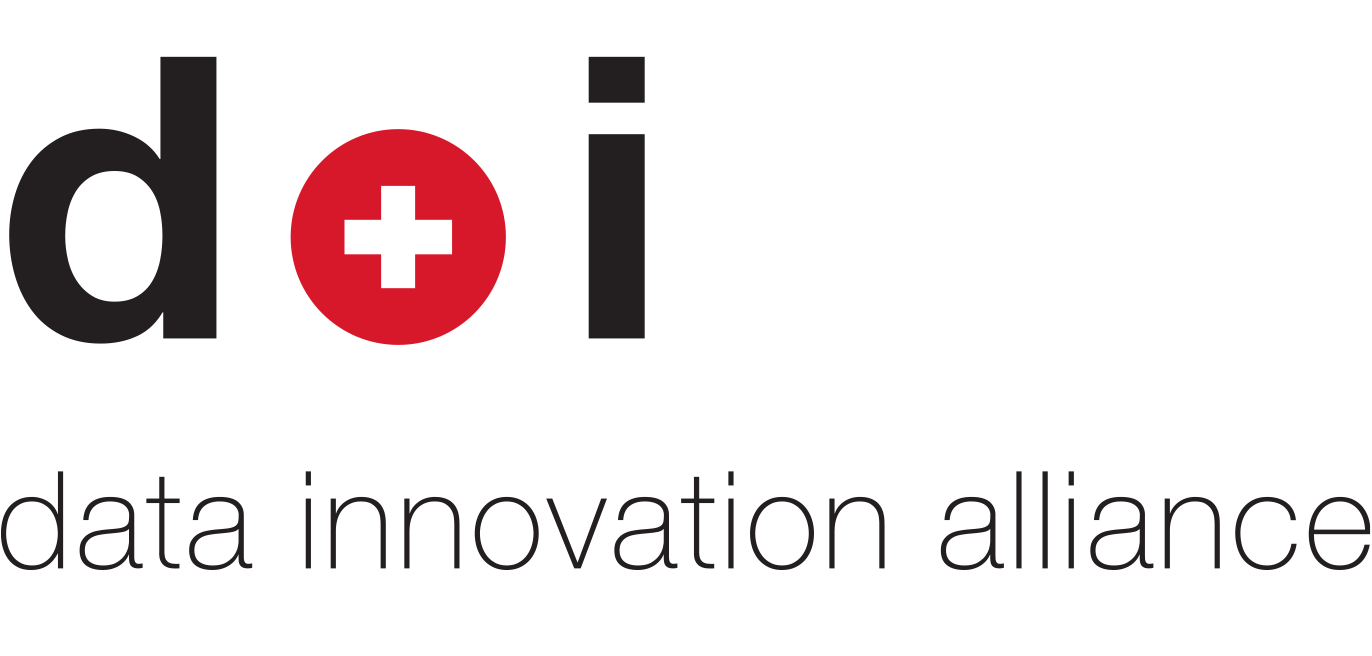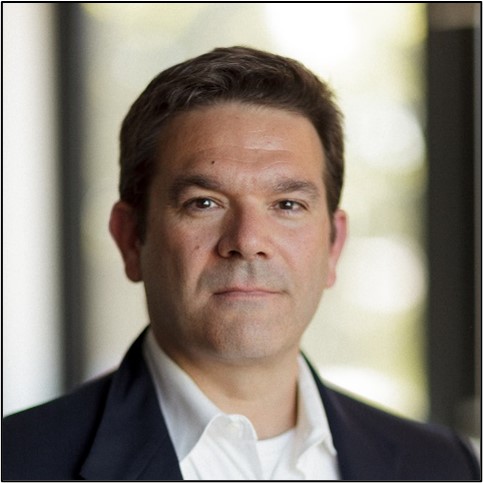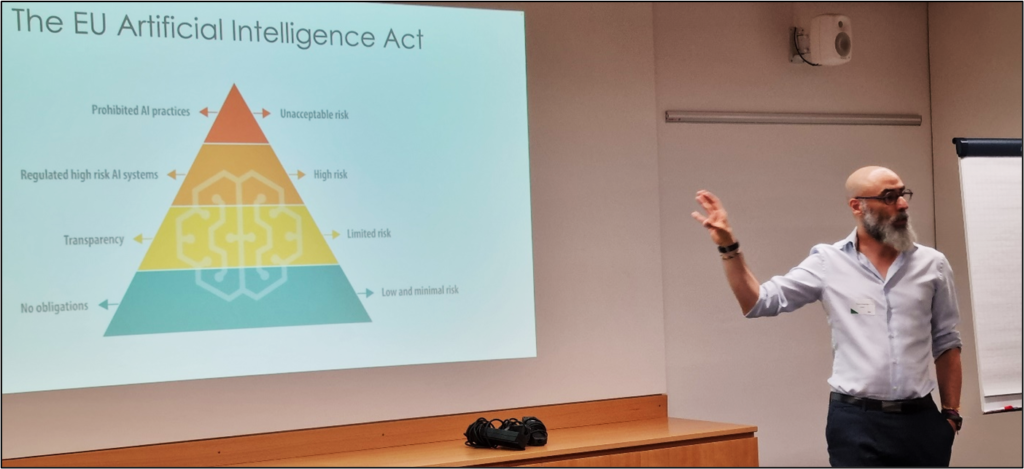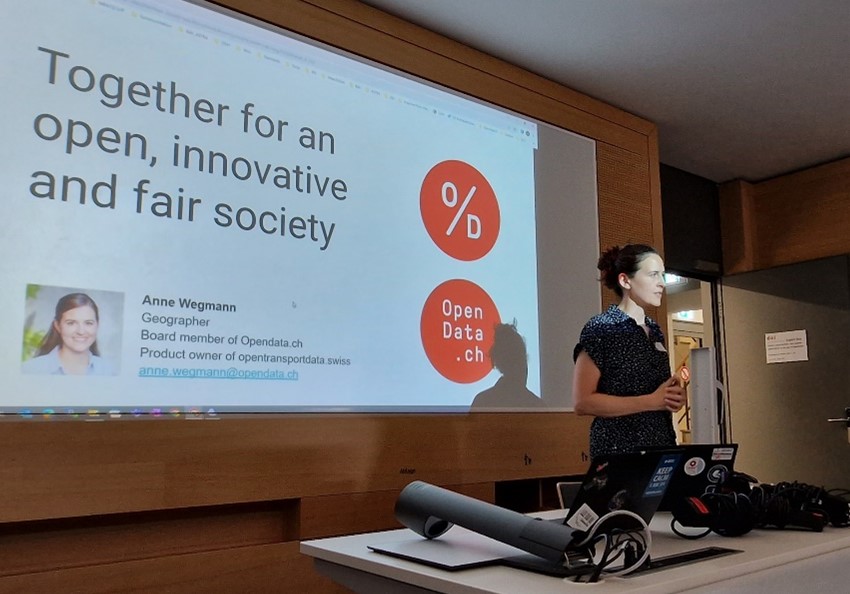Unveiling Innovation: Databooster’s Project Day Recap
By Milena Perraudin, data innovation alliance
Immersing ourselves in the realm of captivating ideas, gaining firsthand insights into the journeys and lessons learned from innovators, and seizing the opportunity to exchange ideas and network with like-minded enthusiasts – doesn’t that sound exciting? Such was our most recent Project Day on December 14th, 2023, hosted at Oracle in Zurich.
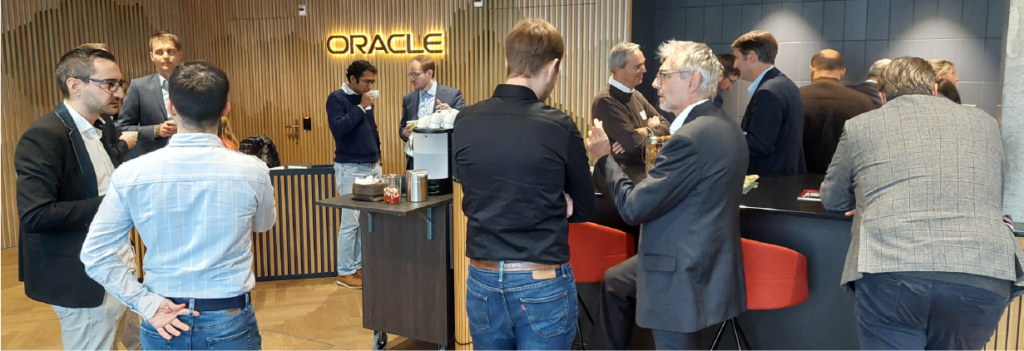
30 enthusiastic participants gathered to hear about a wide range of innovative ideas supported by the Innovation Booster Databooster ranging from data-based battery diagnostics to various projects in the health sector. Participants gained valuable insights into eleven different innovation projects and profited from their lessons learned. The afternoon also offered networking opportunities that sparked new innovative ideas and provided the opportunity to come up with future collaborations.
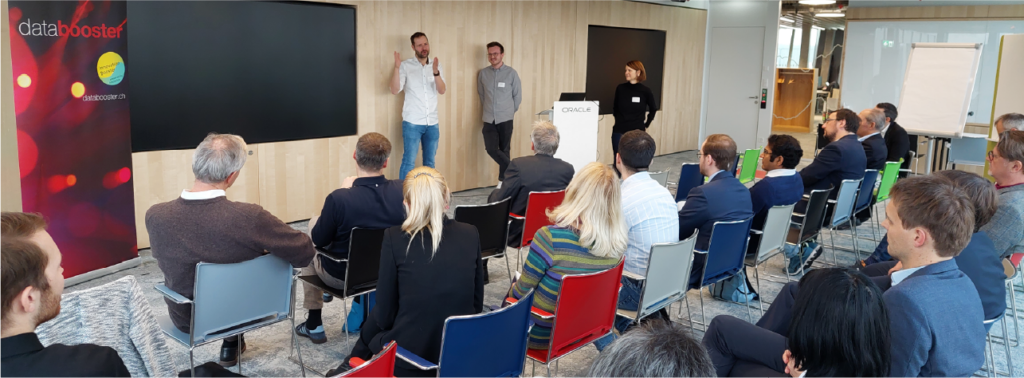
To dive into some highlights, the project presentations started with the brilliant idea from Schwabe Pharma and OST (Eastern Switzerland University of Applied Sciences) on how to better understand the individual appearance patterns of health issues like Tinnitus. They applied BPM (business process mining) algorithms to health data to analyze the multiple factors influencing tinnitus on an individual level but also to improve our general understanding on the health concern.
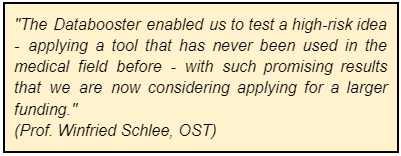
Another highlight was the presentation of the inspiring innovation project from leg&airy and how they aspire for fair human mobility by revolutionizing the world of orthopedic devices. Leg&airy follows the idea of using digital fitting and data-driven design to predict optimal orthotic fit to avoid painful pressure injuries, improve mobility, while enhancing patient privacy by automating the customization process.

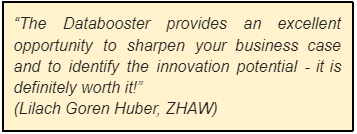
Fluence Energy and ZHAW presented their project “AI-Based Health Prognostics for Battery Energy Storage Systems” and shared some valuable advice for a successful journey from a Databooster funded idea that led to an Innosuisse funding for the upcoming year.
The diverse array of projects showcased the power of collaborative innovation and the transformative potential of data-driven solutions. It was inspiring and valuable spending an afternoon to learn from other innovators, discuss radical innovation ideas and connect for future collaborations.
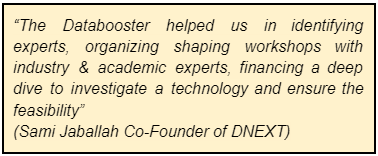

Thank you to the eleven innovation teams that shared their projects, provided some learning opportunities and sparked new ideas: bodenproben.ch, BFH and ZHAW, DNext and HESSO Geneva, Fluence Energy and ZHAW, leg&airy and ZHAW, modulos and ZHAW, opensource.construction, SUPSI and ZHAW, Carity, ZHAW and hospitals, Schwabe Pharma and OST, Stadler Rail and ZHAW, as well as zubischuhe and ZHAW.
And of course, thank you to the participants for their active engagement!

